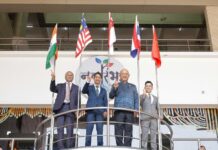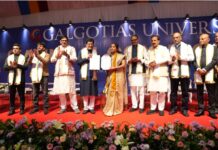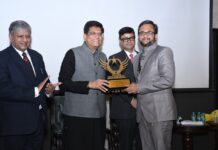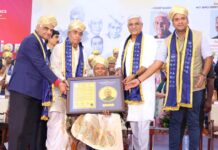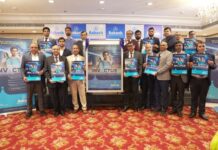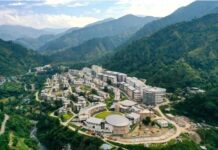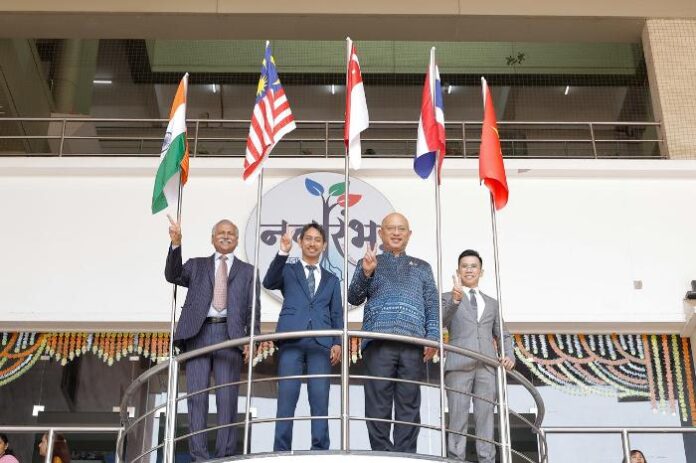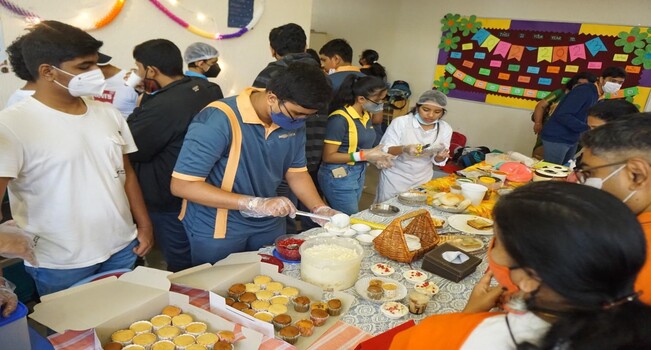New Delhi, May 10, 2025: The ASEAN Round Table hosted by Prin. L.N. Welingkar Institute of Management Development & Research (PGDM), Mumbai also known as WeSchool brought together diplomats, thought leaders and academicians to explore the evolving role of ASEAN in fostering regional peace, prosperity, and multilateral cooperation. The discussions focussed on Association of Southeast Asian Nation’s (ASEAN) contributions over the past five decades and its vision for a secure and sustainable future, with particular focus on ASEAN-India collaboration.
H.E. Mr. Ahmad Zuwairi Yusoff, Consul General of Malaysia in Mumbai, began the Round table with his reflection on the enduring impact of ASEAN, which was established on 8 August 1967 in Bangkok, Thailand, with the signing of the ASEAN Declaration. He said, “With over five decades of existence, ASEAN continues to grow, playing a pivotal role in maintaining regional peace and prosperity. This has been possible through non-interference and peaceful co-existence” He highlighted the organization’s evolving approach to address both traditional and non-traditional security threats in the region.
H.E. Mr. Cheong Ming Foong, Consul General of Singapore in Mumbai, gave an overview of ASEAN’s role in maintaining peace and security as well as highlighted the partnership between ASEAN and India. He said, “ASEAN appreciates India’s support for our efforts in ensuring that major power rivalries do not undermine our regional stability, and focussing our collaboration around an ASEAN-centric framework. India’s support through the Act East Policy and Indo-Pacific strategy is even more crucial as we navigate these challenging times.”
Mr. Donnawit Poolsawat, Consul General of Thailand in Mumbai spoke about the strength and potential of ASEAN-India economic partnership. He outlined the current state of trade and the tools available to facilitate trade and investment between ASEAN and India, including the ongoing AITIGA review which both sides aim to achieve a substantial conclusion by 2025. He also highlighted the importance of the ongoing cooperation on connectivity, both physical and digital, to strengthen economic ties and further connect the two regions’ supply chain.
H.E. Mr. Le Quang Bien Consul General of Vietnam in Mumbai, said, “People to people connectivity plays a pivotal role in advancing environmental sustainability across ASEAN. Local communities, youth, educators, and civil society organizations are key drivers of grassroots environmental action, awareness, and innovation. Initiatives such as eco-tourism, community-based conservation programs, youth climate forums, and cultural exchanges foster a shared regional identity centred around environmental responsibility.” He showcased the ASEAN-India socio-cultural cooperation spanning five major areas: Education and Human Resource Development; Youth and Cultural Exchange; Science, Technology, and IT; Culture and Heritage Preservation; and Sustainable and Community Development.
Key steps taken by ASEAN countries to enhance vision, peace, and security were discussed in depth. These include diplomatic dialogue mechanisms, coordinated disaster response strategies, and strengthened maritime cooperation. A special emphasis was placed on energy security, which was recognized as equally important as traditional security to ensure long-term sustainability in the region.
Prof. Dr. Uday Salunkhe, Group Director of Prin. L.N. Welingkar Institute of Management Development & Research (PGDM), Mumbai emphasized “the potential of ASEAN startups connecting with Indian students. We are also receptive to global innovation and can work together in field of education and research. As an experimentation and technology driven B School, we could look at student-faculty research collaborations with educational institutions as well as foster cultural understanding”.
The ASEAN Round Table at WeSchool concluded on an optimistic note, reinforcing the belief that deeper ASEAN-India ties could act as a catalyst for regional peace, prosperity, and sustainable development in the years to come.
Corporate Comm India (CCI Newswire)




